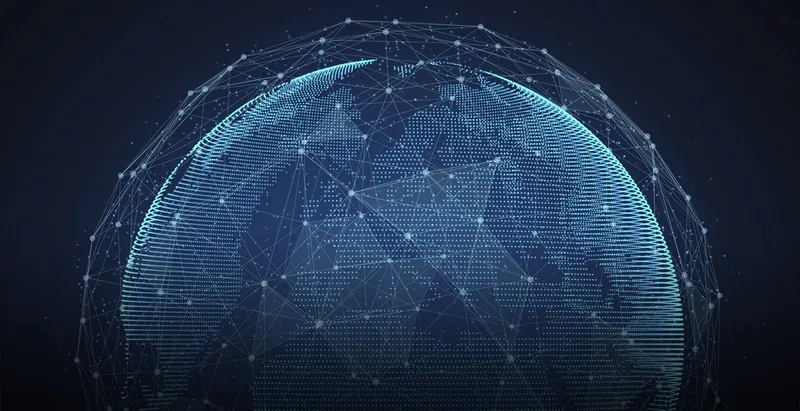Blockchain and the Global Markets - Impact of Blockchain
Blockchain is the technology that powers the various crypto-currencies. It has the potential to seriously disrupt the global economic order and revolutionize it.

Blockchain is the technology that powers the various crypto-currencies. It has the potential to seriously disrupt the global economic order and revolutionize it.
In simple terms, blockchains are chains of ledgers that record transactions between two parties in a transparent and verifiable way. Each blockchain is managed by a peer-to-peer network of individuals who adhere to a fixed set of protocols. The data, once recorded, cannot be altered in any manner.
Blockchain is in the embryo stage today. It is much like the internet of the 1990’s. It is estimated that the total value of this ecosystem is just USD 1 Billion as of now, so it hardly has any impact on the global economy. However, it is predicted to have a significant tremors on the global economy of the future to come.
Truth and Trust
Economists and wealth management experts believe that given the secure nature of blockchains, this technology could give rise to platforms that are based on privacy, trust and truth.
For example, a peer-to-peer network can do away with intermediaries and reduce costs. An overseas payment from a Person X to Person Y might invite the attention of regulatory authorities or instruments such as PayPal. With blockchains around, this transaction is effortless and is guided by trust. The monetary resultant is that Person Y gets the entire money without parting with any commission.
Disruption and Blockchain
Blockchains are going to disrupt the financial systems big time. Most of the time, industrial activity depends upon movements, storage, lending, trading and attestation of money. Each of these money-related activities is going to be severely impacted by the rise of blockchains.
Until now, people participating in economic activities were not getting the full value for their labour. For example, artistes and singers were and still are not compensated adequately for their talent by recording labels and technology companies. Blockchains are going to disrupt this form of exploitation.
So, now a budding singer can upload her composition on one of the blockchain platforms and can dictate terms of contract to movie producers or directors if they would want to use her composition in their movies.
The Incorruptible Digital Ledger
Given the incorruptible nature of the digital ledgers that make up the various blockchains, many cryptocurrencies are using this open source platform to vet digital transactions. This new platform will have a disrupting effect on traditional currencies. Economists believe that these traditional currencies would ultimately remove a lot of inefficiencies.
Enthused by the success of Bitcoin, many new cryptocurrencies are now springing up like Litecoin, Primecoin, and the infamous Dogecoin. Cryptocurrencies are so called because these are protected by layers of code and cannot be stolen in the physical sense.
Venture capitalists have shown an absorbed interest in digital currencies to the extent that biggies like Google have invested USD 90 million in this field.
Likely impact
It has been universally accepted that blockchains and digital currencies will change the way the world transacts. Economic inefficiencies will be reduced, if not removed altogether, and more people will have an equal say in the economic decision making. There will be very few middlemen in the whole business and economic system. One can very well imagine a blockchain Uber replacing the traditional Uber model of managing cabs.
However, governments all over the world will find it very difficult to monitor and regulate the world of crypto currencies and blockchains. Another grey area about this new technology is how to make it more secure and plug the gaps. Unlike the internet which is now a pretty sophisticated eco-system, blockchains are still in their infancy and anything can go wrong anytime.
The job markets will definitely be impacted by this new technology as agents are replaced with blocks. This could land the global economy into turmoil, however, economic fluctuations are a part and parcel of every revolution, and this is a digital one.










